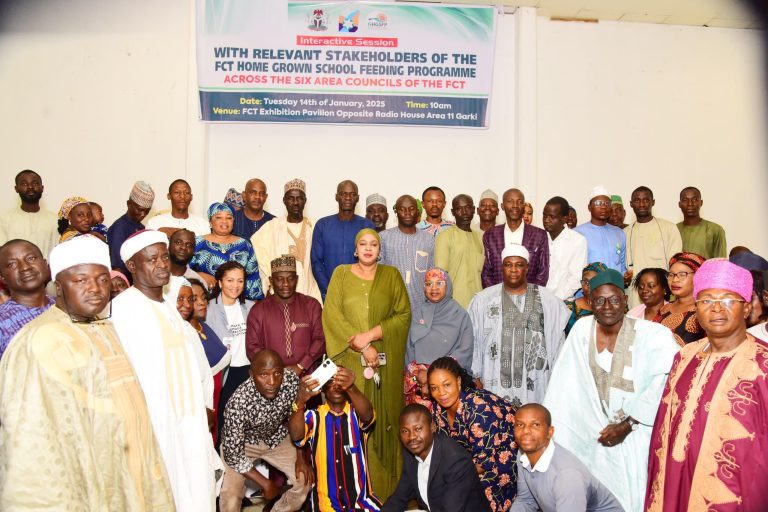From Juliana Taiwo-Obalonye, Abuja
The Federal Capital Territory (FCT) Minister of State, Mariya Mahmoud, on Tuesday highlighted the Home-Grown School Feeding Programme (HGSFP) as a crucial driver for local agricultural development. She emphasized that the initiative not only enhances children’s education but also empowers local farmers by sourcing produce locally.
This approach strengthens the rural economy and creates sustainable markets for smallholder farmers, ultimately fostering food security and economic growth in the region. The HGSFP aims to improve nutrition and increase school enrollment, benefiting both children and their communities.
According to a statement by her media aide, Austine Elemue, the Minister made this statement at the interactive session with stakeholders of the FCT Home-Grown School Feeding Programme across the six area councils in the FCT.
Mahmoud, who was represented by the FCT Focal Person on Social Investment Programme (SIP), Maijidda Kuku, also noted that the aim of the interactive session was to reflect on the successes, address the challenges, and chart a sustainable path forward.
The Minister promised that the FCT Administration would continue to work to the best of its ability with the resources at hand to enable the program’s efficient operation by ensuring that stakeholders regularly convene this interactive session to support the program’s operations and community involvement. Mahmoud praised the essential contributions of community leaders, farmers, cooks, government officials, school administrators, and development partners, but emphasized that the Administration is working to ensure no school is left behind.
Mahmoud called on stakeholders to bring innovative ideas, practical solutions, and a spirit of partnership to the stakeholders’ dialogue.
Senior Special Assistant to the President on School Feeding Programme, Yetunde Adeniyi, on her part, said that the Home-Grown School Feeding Programme is a flagship initiative of the government aimed at providing nutritious meals to schoolchildren, boosting school enrollment, and enhancing learning outcomes.
She emphasized that since its commencement, thousands of children have benefited from daily nutritious meals, leading to increased attendance and retention in schools.
Adeniyi, therefore, called on stakeholders to take up responsibilities and confront challenges head-on to ensure the programme’s continuity and effectiveness.
On her part, the operations officer of the programme in FCT, Hauwa Abubakar, who gave an overview of the stakeholders’ meeting, stressed that the dialogue was to gain the community’s buy-in for better service delivery of the programme through community engagement, increased transparency and accountability of the programme, and linkage of the programme to other empowerment programmes in the FCT.
Representative of the World Food Programme, Agnes Mungatia, in her goodwill message, emphasized the need to strengthen collaboration among all stakeholders.
